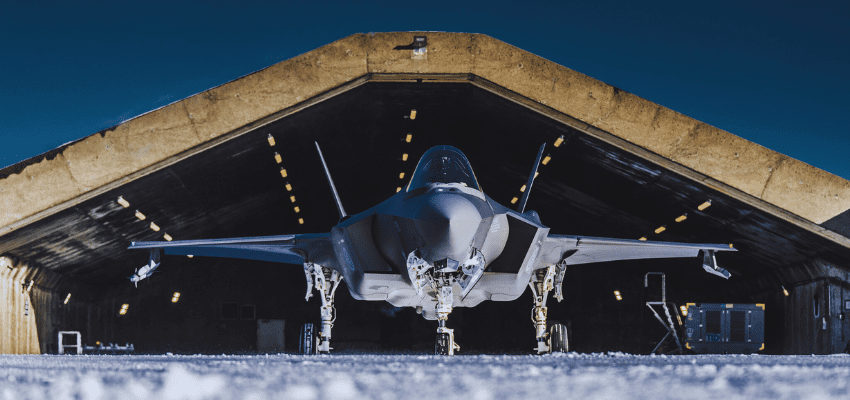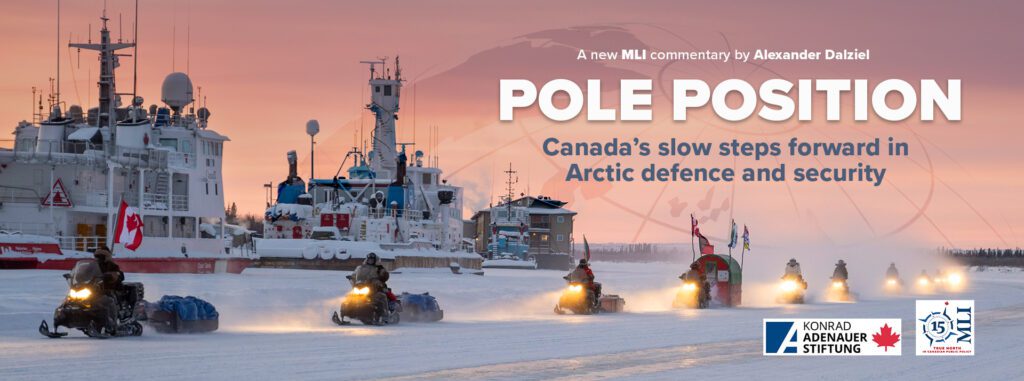This article originally appeared in the Calgary Herald.
By J.L. Granatstein, March 31, 2025
One of Prime Minister Mark Carney’s first actions on the day he took power was to direct Defence Minister Bill Blair to consider cancelling a substantial part of Canada’s order of F-35 fighter jets from the United States. This would be a mistake.
The Lockheed Martin F-35 is a multi-role stealth fighter that has already been adopted by several NATO nations, Israel, Australia and the United States Air Force. It is generally considered to be state of the art in its flying and fighting capacities, its Mach 1.6 speed, its advanced sensors and long range, and its electronic warfare capabilities. It is, however, very expensive, with the cost of a single plane rising above US$100 million.
Canada participated in the development of the aircraft from the beginning. Starting in 1997, the U.S. solicited investment from prospective purchasers who poured some $4.375 billion into the estimated $40-billion development cost. Canada’s contribution was $160 million, and this let Canadian firms bid for and acquire contracts for parts and components, which between 1997 and 2021 generated $1.3 billion.
The Stephen Harper government made the decision to purchase the F-35 without tendering bids from other aircraft companies, but the Justin Trudeau Liberal government, elected in 2015, in effect cancelled the purchase by reopening a search for a fighter jet to replace the RCAF’s obsolescent CF-18s.
The F-35, however, remained among the possible choices, and the Trudeau government in 2022 belatedly ate crow, and said it would purchase 88 at a cost of $19 billion.
The maintenance and operations costs, difficult to estimate precisely over the life of the aircraft, will be many tens of billions more.
The RCAF expected to have a squadron in operation in 2029 and all the aircraft in hand by 2032–34. The first sixteen F-35s, already paid for, are to arrive in 2026.
The purchase and acquisition of the F-35s was proceeding smoothly until U.S. President Donald Trump’s administration began its tariff and annexation threats against Canada in January. Opposition began to build, and Carney’s instructions to consider other fighter options — the Swedish Gripen E fighter jet is a possible candidate — put matters in doubt. Scrapping the rest of the F-35 contract would likely satisfy many Canadians, furious at Trump’s threats from south of the border.
This would be a mistake. There would be a substantial financial cost for ending the contract. Canada went through this before, in 1993, when Jean Chrétien’s government stopped the purchase of “Cadillac” EH-101 helicopters and had to pay $500 million in cancellation charges.
With some reason, the Trump administration would be furious if Canada broke its contract, and this would certainly heighten its economic attacks on and verbal threats against us. Canada is also a participant with the U.S. in Norad, and the U.S. Air Force’s F-22s and F-35s based in Alaska alongside the projected RCAF F-35s are intended to provide North America’s air defences against Russia and China. The F-35 can seamlessly interact with Norad’s systems — a capacity no other fighter is likely to have.
Cancelling the F-35 contract would outrage Washington, which already sees Canada as a freeloader on defence. Meanwhile, flying two types of fighter jets would be more expensive to maintain and further tax the RCAF, which already lacks enough qualified pilots, specialist mechanics, flight instructors and ground crews.
Buying the F-35s will help Canada get closer to its two per cent NATO spending pledge, and signal our seriousness about defence. The purchase might even help to sway Trump on tariffs. It would certainly address his concerns about the U.S.’s supposedly enormous trade deficit with Canada.
Indeed, agreeing to fulfil the F-35 purchase might be a useful trade-off that could salvage lumber, aluminum or steel exports.
Very simply, killing the F-35 contract carries significant risks and very little upside. We have invested in its planning, benefited from production contracts, the first sixteen aircraft are already paid for and the F-35 is the best available aircraft.
The Americans are already unhappy with us, and ending the contract — however satisfying it might be to kick Trump in the shins — can only make matters worse. If doing so actually aided Canada’s defence, it might be justified, but it does not.
J.L. Granatstein, a military historian, is a member of the Macdonald-Laurier Institute’s Advisory Council and the former director of the Canadian War Museum.
The author of this piece has worked independently and is solely responsible for the views presented here. The opinions are not necessarily those of the Macdonald-Laurier Institute, its directors or supporters. The Macdonald-Laurier Institute is non-partisan and neither endorses nor supports candidates or political parties. We encourage our senior fellows to comment on public policy issues, including during election campaigns, but the publication of such expert commentary should not be confused with the institute taking a position for or against any party or candidate.







